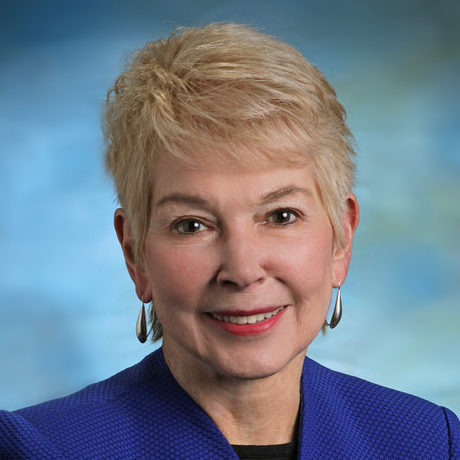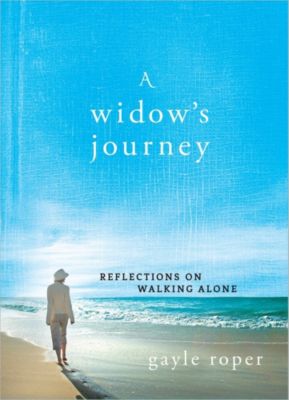
The church’s character is shown by how it treats widows and orphans. Here are seven tips for caring for widows in your church.
Miriam Neff
Did you know there are more than 11 million widows in the U.S.? Widows are a significant demographic, and many are younger than you may expect.
Yes, people prey upon widows. They did in biblical times, and they still are today. Widows need those who will care and look out for them. Unfortunately, within the first year of widowhood, half leave the church they were attending at the time.
Dear pastors and leaders, your schedules are packed, and your churches have various needs. I’d like to offer you some simple suggestions to flesh out James 1:27: “Pure and undefiled religion before God the Father is this: to look after orphans and widows in their distress and to keep oneself unstained from the world.” Clearly, the character of the church is shown by how it treats widows and orphans—the voiceless and vulnerable.
“The character of the church is shown by how it treats widows and orphans—the voiceless and vulnerable.” — Miriam Neff Click To TweetMinistry to widows in the church
More than 100 verses in Scripture show God’s heart for widows and His instruction to care for them. I believe churches care about widows but don’t know what to do. Church leaders are stretched thin, and other programs take priority. Folks care but don’t reach out.
Each church is unique. No one model of ministry fits all. I recommend appointing someone to ensure that the widows in your church are “looked after.” Once you’ve established the leadership, you’ll need to determine who the widows are and then follow up to discover their needs.
While financial needs and help with home upkeep are common, connection is vital. Many of a woman’s connections with the church are broken upon becoming a widow, especially a pastor’s widow. This time is a widow’s most painful, lonely, and vulnerable part of her journey—a time when she needs believing friends near her.
Losing many in our friendship network is typical, tough, and can be addressed. I thought I’d be an exception; I was wrong. Our churches should be places of comfort, not aloneness. God sees every widow as His treasure and has a great purpose for her.
Allow me to offer a few tips I learned on my own journey into widowhood. You can share these practical tips with leaders in your church and disseminate them through small groups.
1. Stay connected
There’s already a huge hole in our universe. Don’t assume we need “space” to grieve. We are tempted to fill lonely hours with empty activities, shopping, or wrong relationships. Before we heal and become whole people on our own, reaching for another person to fill the void is asking for trouble. We can hide, hoard, hand out, or hibernate. These are all fake solutions to our loneliness. Staying connected to people who have our best interests at heart is what we need.
“Staying connected to people who have our best interests at heart is what we need.” — Miriam Neff Click To Tweet2. Say you are sorry for our loss
We would rather you tell us you don’t know what to say than tell us your story of losing your friend or even close relative. We may be able to listen to your story later but not now. Don’t tell us you understand. Each loss is unique. Yes, it’s tempting for you to try to relate by telling us of your loss. But don’t do that now. Listen, listen, and then listen more.
3. Call and ask specific questions
Can we go for a walk together? May I run errands for you? Can I meet you for coffee? Don’t say, “Call me if you need anything.” Our arms are too weak to lift the phone. Enter our space. It may have become a disaster area. Our refrigerator may be empty and our appearance, well, unkempt. We need you to keep us real, in the now. We are tempted to look back and miss what God has for us in the moment.
4. Refer to our husband’s acts or words—serious or humorous
We find comfort in knowing you have not forgotten our husbands. Do not leave our husbands out of the conversation. You might be thinking: “But that will bring tears.” Yes. But healing tears of remembrance are a good thing. Our culture doesn’t handle tears well. But God does. They are treasured indeed.
“Our culture doesn’t handle tears well. But God does. They are treasured indeed.” — Miriam Neff Click To Tweet5. Invite us to anything
We may decline, but we appreciate you asking. Don’t assume we no longer want to participate in couples’ events. And don’t become discouraged in your asking. In time, we’ll join you again. True friends stay, and we all adjust to the new reality. A few true friends are golden. I enjoy being with other couples now. Early on, it was painful. But being excluded is even more pain-filled.
6. Accept that we are where we are
Marriages are brief, long, healthy, dysfunctional, intense, remote. Death comes suddenly or in tiny increments over years. Again, our experiences are as different as we are and so is our journey through grief. Don’t assume we go through the outlined grief process “by the book.” Some marriages were not the sparkly object folks saw. And some have such fierce, tender, and tight bonding that grieving will be long and hard.
7. Walk the talk
Don’t make “conversation only” offers. “We’ll call you and go out to dinner,” and then not follow up. We are sensitive in our grieving, but we’d rather hear you say, “I’ve been thinking of you,” than make a “conversation-only” offer. Please know that as a widow, we know our share of crushed expectations. We have dreams that will never happen. Please don’t get our hopes up of an anticipated event or connection and then not follow through.
Some widows need support only for a few months, others longer. We become strong and are ready to move forward into God’s good plans for us. Some stay to lead the next widows through to strength.
Your church can become that healing place where widows love to enter, worship, pray, give, and serve. That’s our desire. I believe that is the desire of your church as well. Then you can say with Job that you made the widow’s heart sing (Job 29:13).

Miriam Neff
Miriam is national and international speaker on women’s issues and the founder and president of Widow Connection and is the author of 12 books, including From One Widow to Another: Conversations on the New You. She has 23 years of professional counseling experience and is the widow of Robert Neff, mother of four children, and a grandmother.
For permission to republish this article, contact Marissa Postell Sullivan.









